How Microsoft fuels Gaza genocide and silences employees who speak out
By Alireza Akbari
At Microsoft’s 50th anniversary celebration on April 4, Ibtihal Aboussad, a Moroccan Harvard graduate and engineer on the company’s AI Platform team, publicly condemned the tech giant for its complicity in Israel’s genocidal campaign in Gaza.
During a keynote presentation by Mustafa Suleyman, CEO of Microsoft AI, focused on the future of the company’s AI app Copilot, Aboussad interrupted from the audience.
“Mustafa, shame on you. You claim that you care about using AI for good, but Microsoft sells AI weapons to the Israeli military,” she said, attracting everyone's attention.
Aboussad, who is of Moroccan origin, went on to denounce the US-headquartered company’s role in war profiteering amid the ongoing American-Israeli genocidal war on Gaza, which has killed more than 50,000 Palestinians, mostly children and women.
Human rights organizations say the true scale of death and devastation may be far greater than reported, as thousands of bodies remain trapped beneath rubble.
“You are a war profiteer. Stop using AI for genocide in our region. You have blood on your hands. All of Microsoft has blood on its hands. How dare you all celebrate when Microsoft is killing children," she said before being escorted out of the event held at Microsoft headquarters in Redmond, Washington.
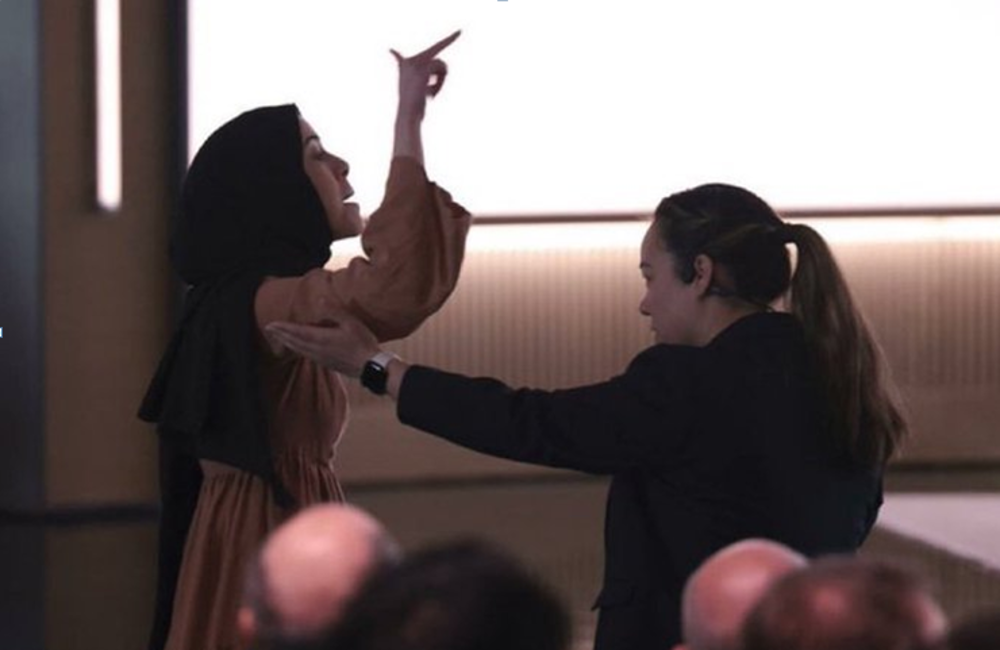
Prior to her public protest, a video of Aboussad circulated widely on social media, in which she acknowledged the personal risks of speaking out against Microsoft’s support for the Israeli genocide of Palestinians in the Gaza Strip.
“They could come after me,” she said, referring to potential retaliation. But the threat, she added, was not enough to justify silence in the face of the genocide of Palestinians.
“The fear of that retaliation-like does not counter the fear of working on technology that bombs innocents.”
Her greatest fear, Aboussad said, was that her code might be used to kill children in Gaza—deepening a tragedy already imposed by the Tel Aviv regime.
“The fear of contributing to the genocide in Gaza is greater for me,” she said.
On April 5, 2025—marked annually as Palestinian Children’s Day—the Gaza-based resistance movement Hamas issued a statement condemning Israel’s acts of aggression and drawing attention to the systematic targeting of Palestinian children.
“Some 19,000 children have been killed, over 1,100 others have been detained, and around 39,000 have become orphaned by losing one or both parents, while thousands others face the threat of famine, malnutrition, and disease,” the statement read.
Shortly after being escorted out of the Microsoft event, Aboussad sent a mass email to employees across several teams, explaining the motivation behind her protest.
She described how Arab, Palestinian, and Muslim employees have been silenced within Microsoft since the Israeli genocidal war on Gaza began in October 2023. Efforts to speak out against the US-backed genocidal campaign, she said, fell on deaf ears.
Aboussad said her initial enthusiasm for working on the AI Platform team faded when she realized her transcription work might be used to monitor and transcribe phone calls, aiding Israeli forces in targeting Palestinians.
She also cited an AP report revealing a $133 million contract between Microsoft and the Israeli regime, condemning the company’s profiteering from the ongoing butchering of children in Gaza.
Following her protest, Hamas issued a statement commending Aboussad’s “heroic stance” and stated that her action “has exposed the complicity of major global technology companies with the Zionist killing machine.”
Aboussad’s protest was followed by another employee, Vaniya Agrawal, a Microsoft worker of Indian origin, who also publicly condemned the company’s complicity in Israel’s genocidal war on Gaza.
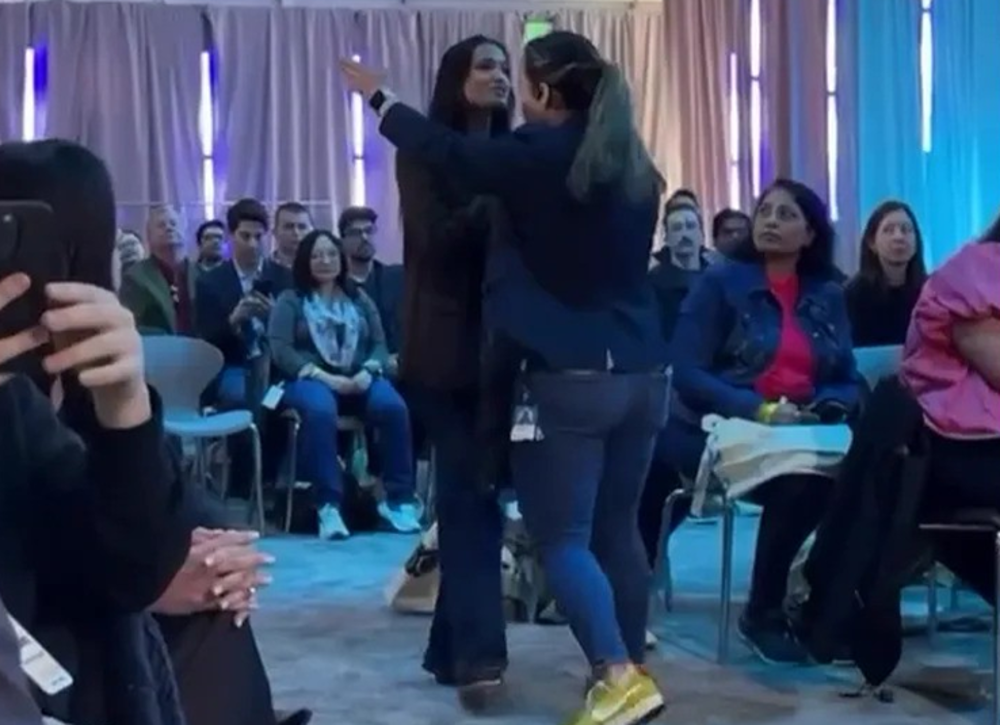
Agrawal interrupted a Q&A session featuring former CEOs Bill Gates and Steve Ballmer, as well as the current Indian-origin CEO Satya Nadella.
“Shame on you all. You’re all hypocrites. I’m a Microsoft worker, and I do not consent,” she said, addressing the tech giant’s leadership directly.
“Fifty thousand Palestinians in Gaza have been killed with Microsoft technology. How dare you? Shame on all of you for celebrating on their blood,” she added.
Like Aboussad, Agrawal was forcefully removed from the event. Both employees voiced their opposition during Microsoft’s 50th anniversary celebration, directly challenging the company’s ties to the Israeli military.
Afterward, Agrawal sent a farewell email to colleagues, reaffirming her decision and stating that her resignation was driven by Microsoft’s role in enabling wanton violence through its technology.
She further detailed the reasons behind her resignation, listing Israel’s genocide of Palestinians, mass human rights violations, indiscriminate carpet bombing, and the deliberate targeting of schools and hospitals.
“You may have seen me stand up earlier today to call out Satya during his speech at Microsoft’s 50th anniversary,” Agrawal wrote in her email to colleagues.
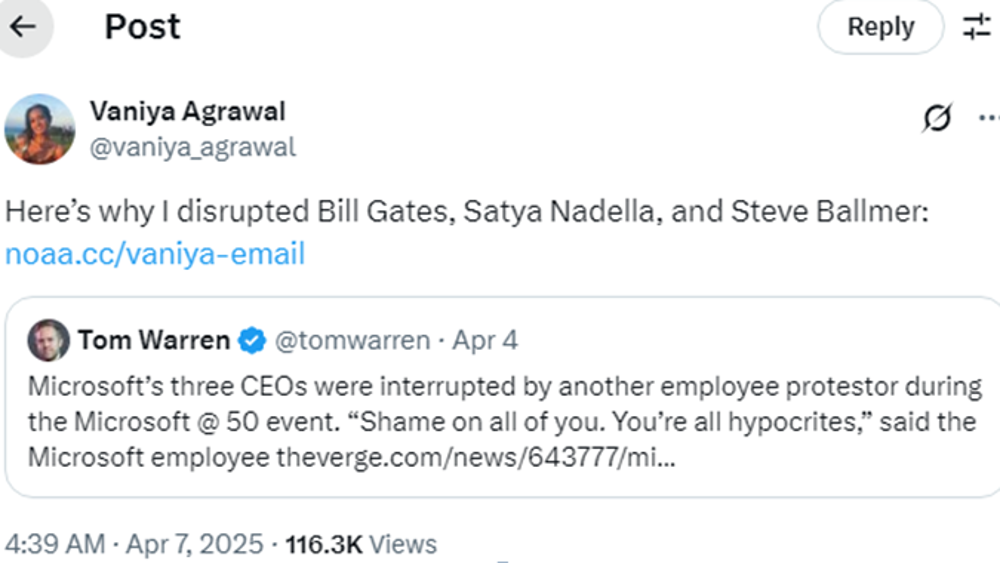
She also explained that she could no longer remain at a company whose technologies, she said, were being used to enable genocide by the Tel Aviv regime.
Like Aboussad, Agrawal cited an Associated Press investigation that revealed Microsoft’s $133 million contract with the Israeli Occupation Forces (IOF).
She referred to Microsoft as “a digital weapons manufacturer that powers surveillance, apartheid, and genocide,” and urged fellow employees to sign the “No Azure for Apartheid” petition.
On April 7, Microsoft terminated Aboussad’s employment, while Agrawal—who had already submitted her resignation citing ethical concerns—was informed that her departure, originally set for April 11, would take effect immediately.
Both Agrawal and Aboussad are members of “No Azure for Apartheid,” a collective of Microsoft employees demanding the company sever all contracts with the IOF.
The group has been active for over a year, organizing internal protests to draw attention to Microsoft’s role in supplying AI and cloud computing services to the Israeli military.
However, Agrawal and Aboussad were not the only Microsoft employees who were fired for protesting the company’s involvement in the war on Gaza.
In February 2025, five other employees staged a protest during an internal town hall meeting at Microsoft’s Redmond, Washington campus.

As CEO Satya Nadella presented new products, the employees stood up and revealed T-shirts that spelled out the question, “Does Our Code Kill Kids, Satya?”
Activists at the time described the act as a direct challenge to Microsoft’s involvement in providing technology used in the Israeli bombing campaign that has flattened entire neighborhoods in Gaza.
In October 2024, Microsoft terminated the employment of Abdo Mohamed, a data analyst, and Hossam Nasr, a software engineer, after the duo organized a vigil on the Redmond campus to honor Palestinians killed by Israeli occupation forces.
The event featured a banner reading, “No Azure for Apartheid End All Azure Contracts with IOF.”
“We held a space for community to come together, to hold grief, a space that Microsoft tried to suppress, tried to silence, tried to cancel, repeatedly for over a year,” Nasr said in a video that went viral on social media.
In the video, Nasr posed a pointed question about Microsoft's commitment to human rights in the context of Israel’s war on Gaza.
The vigil was part of a broader employee-led effort to challenge the ethical implications of Microsoft’s AI and cloud services being deployed in Israeli acts of aggression.
Held in an open area of the Redmond campus, the event was peaceful, featuring candles and signs. Organizers emphasized that they had adhered to company guidelines for employee expression.
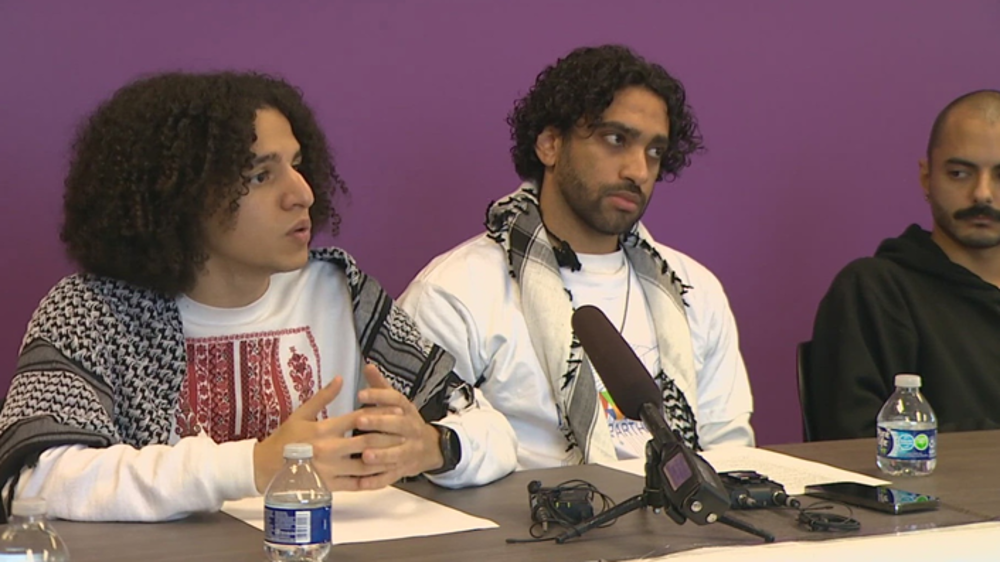
Despite this, Microsoft terminated Mohamed and Nasr’s employment, citing violations of internal conduct policies and disruptions to company operations.
The dismissals drew sharp criticism from digital rights advocates and labor organizations, who called the move a suppression of internal dissent.
They argued that penalizing employees for participating in non-violent protest undermines workplace rights and muzzles necessary ethical debate over the role of corporate technologies in global issues.
The protests by Microsoft employees come in the wake of multiple contracts and collaborations between the company and the Israeli military, involving a wide range of technologies and cloud services provided to the Tel Aviv regime.
Microsoft remains a key provider of cloud services and artificial intelligence to the Israeli military, according to internal documents detailing contracts between Microsoft and Israel.
Leaked documents show a dramatic surge in Israel’s use of Microsoft technology following October 7, 2023, when the regime launched its all-out genocidal campaign on Gaza, carpet bombing the territory.
The records suggest that Microsoft's relationship with the Israeli military is far deeper—and more lucrative—than previously known, revealing the company’s critical role in supplying advanced cloud infrastructure and AI tools during the Israeli war on Gaza.
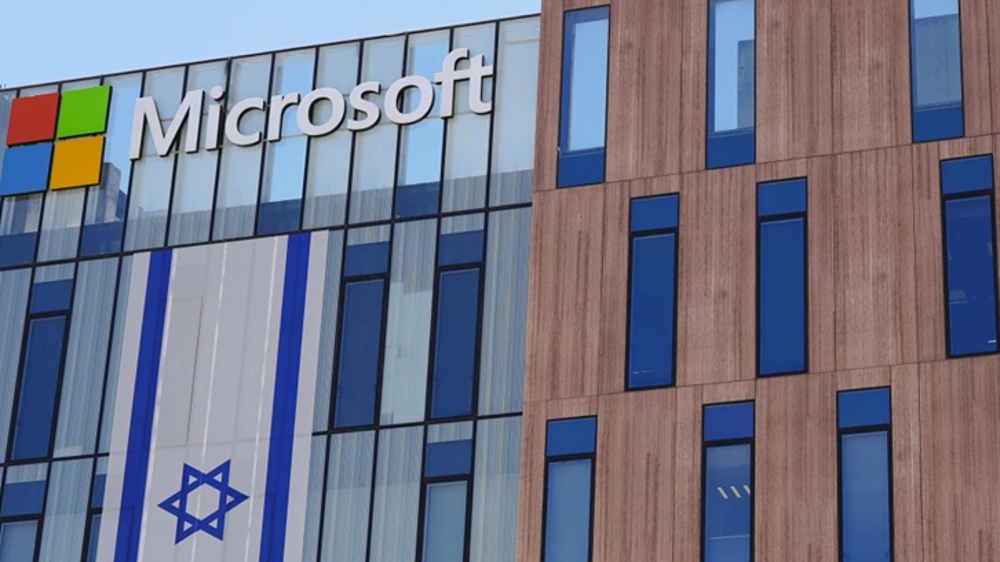
Microsoft’s partnership with the Israeli military dates back to 2002, when it signed a $35 million agreement to supply software licenses and cybersecurity solutions.
The deal gave Israel’s occupation forces sweeping access to Microsoft’s technological ecosystem, including unlimited software product licenses, advanced computing systems, and a suite of cybersecurity tools.
It was one of the earliest and most comprehensive tech partnerships between Microsoft and the Israeli regime, embedding the company’s software deeply into the regime’s military systems.
From 2007 to 2021, Microsoft expanded its collaboration with the Israeli military.
In 2021, the company participated in joint hackathons with Israeli occupation soldiers, who developed apps for military use. These included a weapons calibration app for combat training and another called “Settlement Defense,” designed to aid Israeli settlers in the occupied territories.
In the same year, Microsoft also offered virtual artificial intelligence training courses designed for Israeli military personnel—demonstrating a direct role in building technical capacity within IOF.
In one telling example of the company's technological integration, Xbox controllers were repurposed as training tools to simulate the operation of armored fighting vehicles.
Following the outbreak of Israel’s war on Gaza in October 2023, the Israeli military dramatically ramped up its use of Microsoft’s cloud and AI infrastructure.
According to leaked contracts, the IOF secured approximately $10 million in additional services, including access to OpenAI’s GPT-4 language model through Microsoft’s Azure platform.
These contracts also included thousands of hours of technical support and cloud computing power.
The services supported a wide range of operations—from internal administration to real-time battlefield data analysis—marking a sharp escalation in Microsoft’s involvement in the Israeli acts of aggression.
According to internal data, the IOF’s deployment of Microsoft-powered AI models surged nearly 200-fold compared to pre-war levels.
These AI tools were used to process vast volumes of data, including intercepted communications, aerial surveillance footage, and other spy sources.
Activists and whistleblowers have stated that the purpose was to streamline bombing operations, leading to strikes on entire neighborhoods across Gaza.
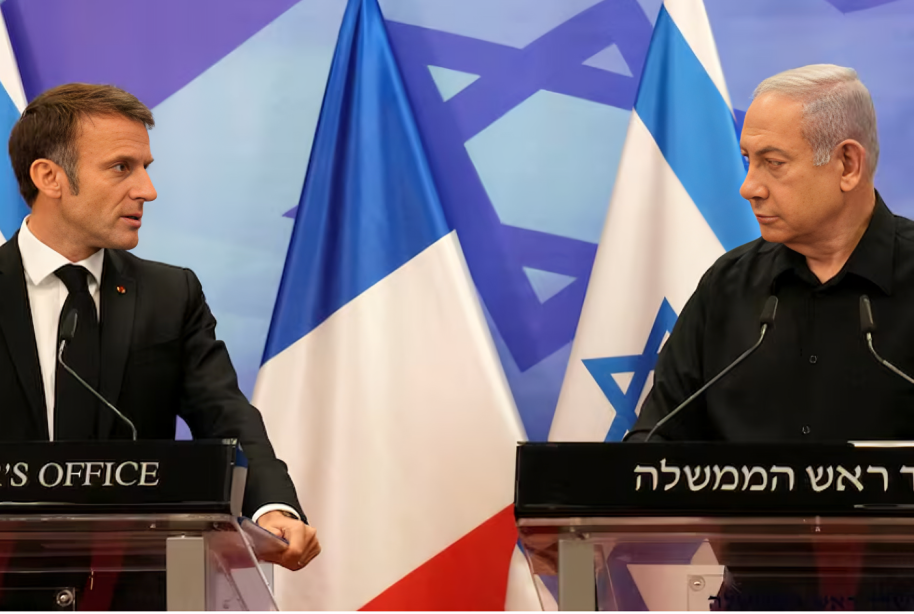
Israel revokes visas for 27 French MPs after Macron signals support for Palestinian state
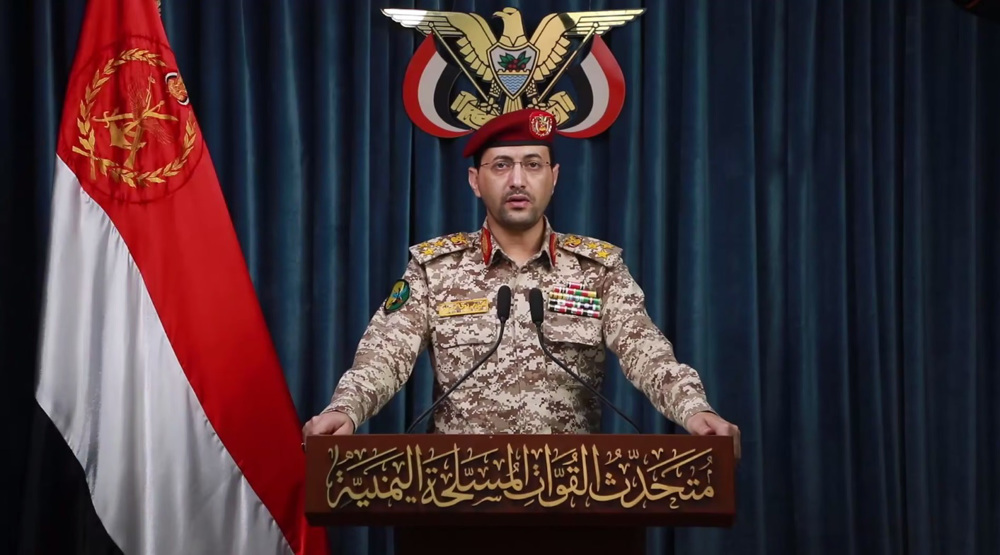
Yemen strikes vital Israeli targets deep inside occupied land, US warships
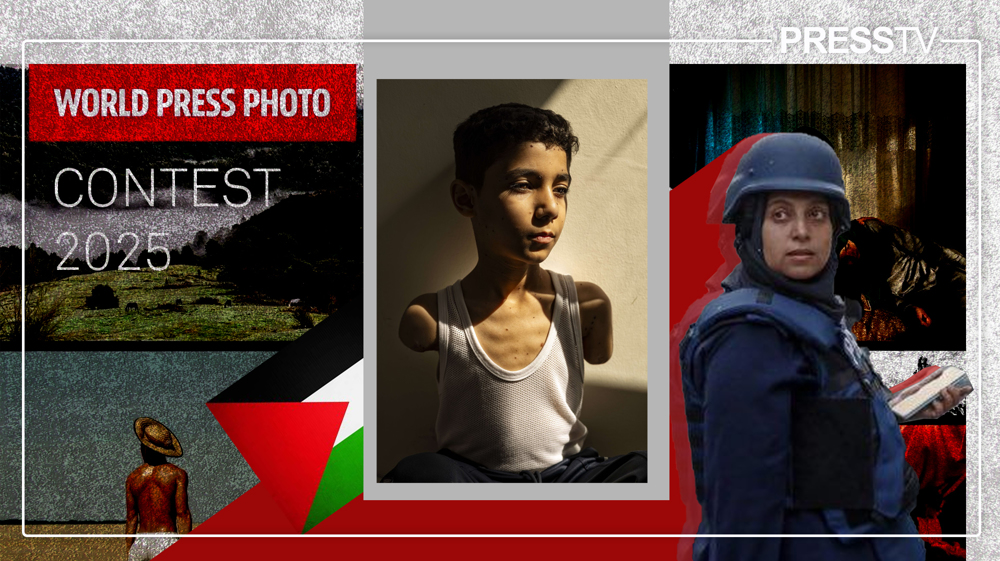
2025 World Press Photo: 9-year-old Palestinian amputee symbolizes Gaza's tragedy
VIDEO | Press TV's news headlines
‘Guardians of Revolution’: IRGC warns enemies it is at ‘peak of all-out readiness’
Microsoft collaboration in Gaza genocide
VIDEO | Senior Hamas-allied leader killed in Israeli drone strike south of Beirut
Syria arrests Islamic Jihad officials after US ties sanctions relief to ban on Palestinian groups
Gaza children dying not only from bombs, but hunger: Health Ministry
Israeli strikes kill nearly 10 Gazans, including two children, in new aggression
VIDEO | Rome talks & sword breaks in Gaza


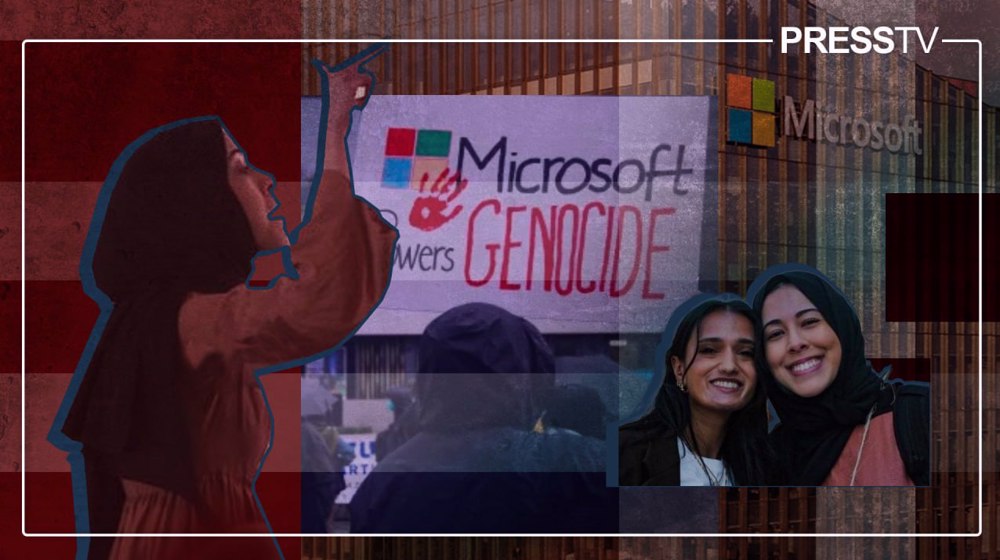
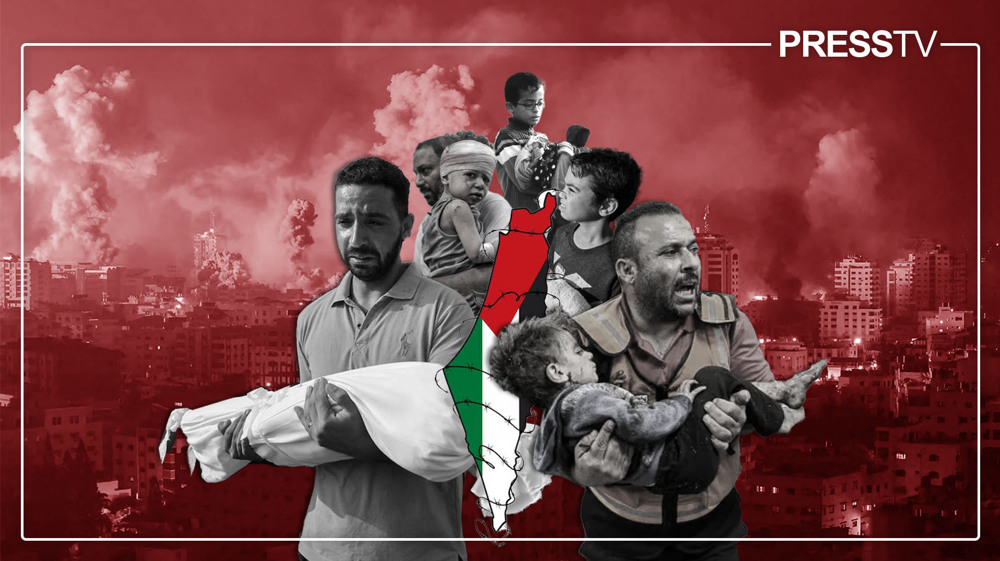



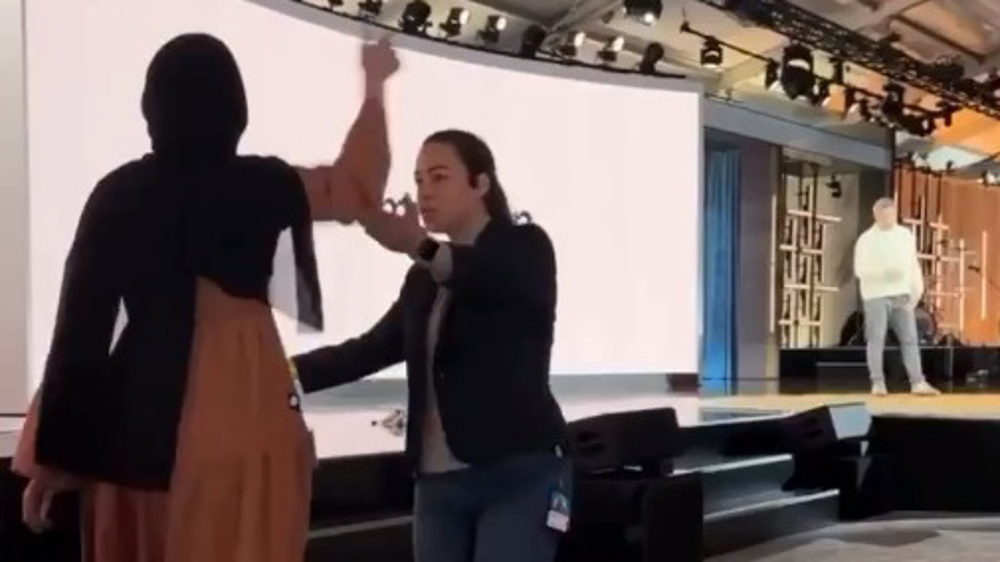
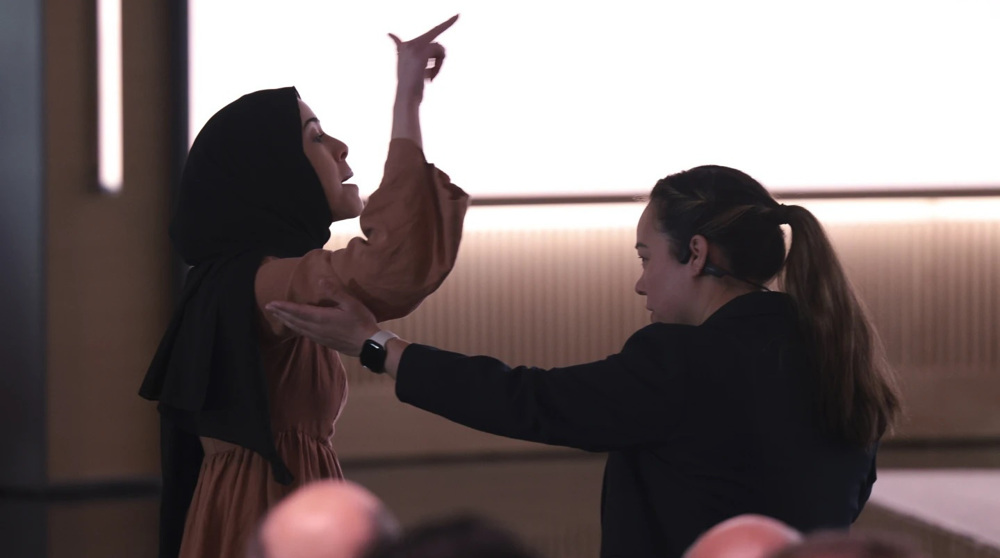
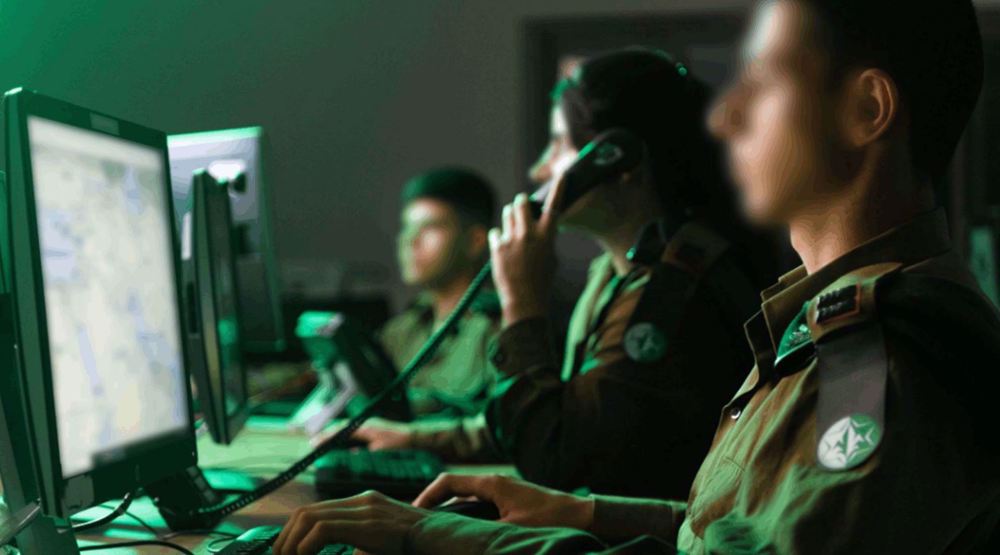
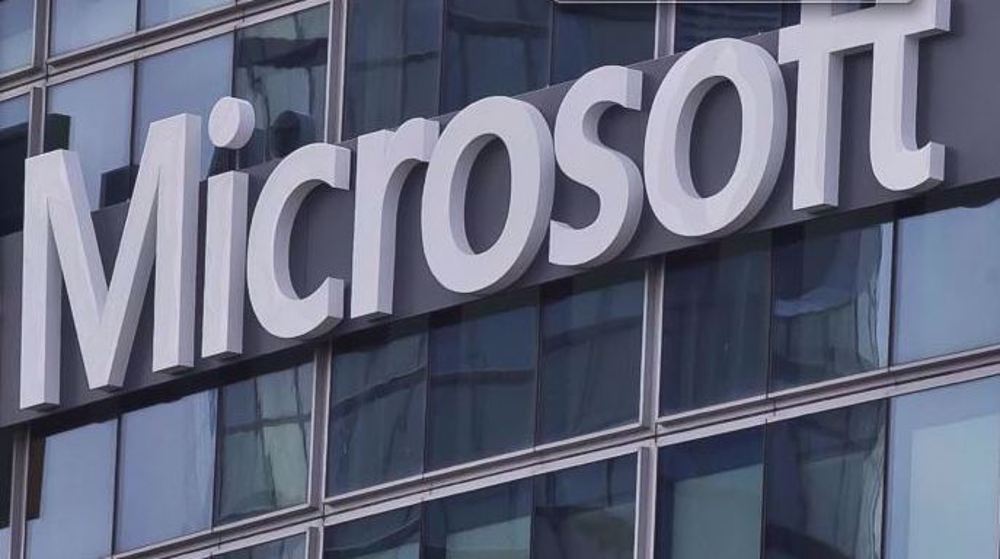
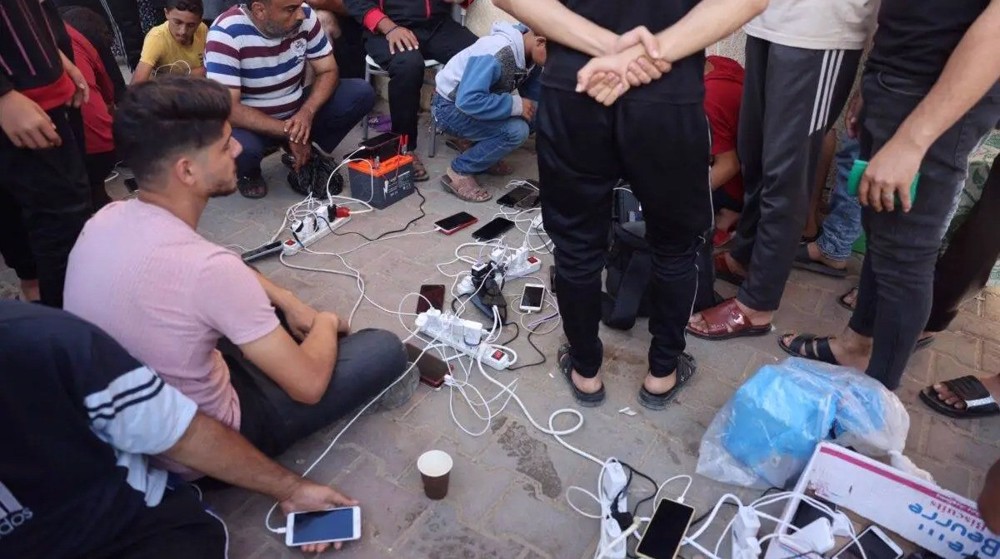

 This makes it easy to access the Press TV website
This makes it easy to access the Press TV website